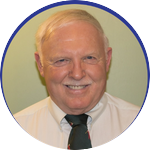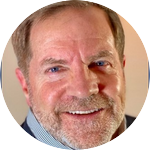
Bring ICMA's Certificate and Micro-Certificate programs to your jurisdiction. Offered live online and in-person, we will bring the training to you. These comprehensive, skill-building courses include content that is aligned with ICMA's Practices for Effective Local Government Management and Leadership; expert facilitation; peer-to-peer, collaborative learning; and certificates of completion.
Not sure which course to take? Contact Nedra James at njames@icma.org to learn more and discuss the best option for your organization.
Certificate Programs
Building and Sustaining Organizational Excellence: A Targeted Approach for Local Governments
Learn how to better align your organization's performance with stakeholder needs and expectations.
In this two-day in-person certificate program, you will learn the eight major levers contributing to organizational performance and their need to be aligned with--and reinforce--stakeholder needs and expectations. We will use assessments, small group exercises and discussions, individual critical thinking, and detailed action planning to establish your current state and define your approach, and plan to achieve your desired state.
Pricing: Contact Nedra James at njames@icma.org for a quote.
Modalities: In-Person
Have a group to train? Get a quote.
Addresses ICMA Practices for Effective Local Government Management and Leadership: [6] Strategic Leadership [7] Strategic Planning, [13] Human Resources Management and Workforce Engagement
- Learning Objectives
-
Knowledge
- Explain the framework for organizational excellence and how it can be used to guide your leadership philosophy.
- Describe the organizational culture you desire and how you will achieve it (leading change with communications, collaboration, trust, etc.).
- Define how external and internal customers (and other stakeholders) will benefit from your achieving organizational excellence.
- State the “driving forces” and “restraining forces” that affect your organization’s ability to achieve organizational excellence.
- Explain the “sustainment tools” that you will use to institutionalize key elements of the framework.
Skills
- Assess your organization’s current state or progress (pain that has been reduced/eliminated and opportunity gained that still exists) against the framework.
- Determine who will be in your coalition of advocates.
- Identify which jurisdictions you will benchmark, and how and what you will focus on learning.
- Practice the conversations you will have with your senior staff and others to share your vision and win their commitment to the journey.
- Plan how you will use measures and recognition/rewards to lead the change.
- Draw a rough “strategy map” to describe the linkage between the (capacity) “enablers” you’ll invest in and the desired results.
- Create the “shell of an action plan” that embodies all the assessment, learning, and thinking you’ve gained from this micro certification program.
Confidence
- Describe the source and degree of your personal commitment and your willingness to lead this journey to organizational excellence.
- Present our learning from the micro certification by simulating a presentation to the council or board of supervisors, illustrating the actions you’ll be taking, and what support and commitment you need from them.
- Course Schedule
-
DAY 1
- What is a high-performance organization and why does it matter?
- Organizational pain that a high-performance organization helps minimize.
- Benefits that can come from being a high-performance organization.
- Component parts and framework.
- Barriers and critical success factors.
- Vision and strategic direction.
- Alignment of budget, annual plans, metrics, and rewards to strategy.
- Employee commitment.
- Workforce (at all levels) knowledge, skills, and confidence.
- Workforce (at all levels) knowledge, skills, and confidence.
DAY 2
- Measurement and metrics.
- Effectively implementing and dealing with change.
- Process to becoming a high-performing organization.
- Identifying your organization/department/team’s pain or “opportunity gain” (Good to Great).
- Is it compelling enough?
- Define organizational excellence for your setting—behavioral and results-based outcomes.
- Force field analysis—analyze driving and restraining forces.
- Guided action planning—complete detailed template.
- Accountability/check in features.
- Practice presentations on diagnosis results/action plans.
- What is a high-performance organization and why does it matter?
- About the Presenter
-

Jeffrey Parks is an executive and organizational coach who focuses on helping local governments achieve organizational excellence. He has presented ICMA University workshops and micro certificate programs at international and regional conferences, facilitated veteran transition cohorts, and acted as a panelist on a virtual coaching webinar. He has provided consulting and coaching services to leaders of northern Virginia local governments, including Prince William, Fairfax, and Arlington counties and the city of Alexandria. His workshops are based on his 8-piece puzzle framework that describes organizational excellence. His classes are interactive, contextual, applied, and leverage the knowledge and experience of the participants. Parks had a 20-year career in the U.S. Coast Guard--finishing as the director of Training, Workforce Performance Improvement, and Leader Development--where he led the creation of the first-ever core values of the Coast Guard (formed in 1790). As a senior consultant for International Management and Development Group, he consulted with directors and managers at General Electric, General Motors, Chrysler, AlliedSignal, GTE, MCI, and Siemens. In 1998, Parks established Performance Breakthroughs, Inc. (PBI) to guide organizations, teams, and individuals to excellence. His passions and expertise are in strategic and systems thinking, leadership and management development, executive and career/life coaching, improving employee commitment, change management, teams, cross-departmental communications, and measurement and evaluation, which he integrates in the framework of organizational excellence. A graduate of the U.S. Coast Guard Academy, he holds a master’s degree in education, specializing in guidance and counseling. He has coached more than 3,000 people and defused nearly 30 suicides. He is 75% fluent in Spanish and is an Eagle Scout.
==========================================================
Data-Driven Decision Making
Data-driven decision making doesn't have to be rocket science. Learn how local governments can take the next steps with data - and it's easier than you might think!
In this on-line program, learn to give sound credence to new policies and initiatives by bringing together appropriate data sources, analysis, and metrics to inform your choices, reasoning, and actions. Data-driven decision making increases inclusivity, defensibility, and the opportunity for performance measurement. Most importantly, data-driven decision making increases the likelihood that government leaders and staff decisions produce the desired outcomes.
Data-Driven Decision Making Plus (Capstone) provides all the benefits of the certificate program plus the opportunity to receive coaching as you use what you have leaned to make a positive impact for your organization.
Modalities: Live Online
Have a group to train? Get a quote.
Addresses ICMA Practices for Effective Local Government Management and Leadership: [6] Strategic Leadership [7] Strategic Planning, [13] Human Resources Management and Workforce Engagement
- Overview
-
Local government professionals agree that evidence-based decision making is the best practice. Even so, the majority of cities don’t use data for their strategic planning processes. The truth is the overwhelming mountain of “big data” often paralyzes action. So how can leaders harness the right community data in the most practical ways for the best return? In this certificate program, Polco data science experts will teach the best ways to incorporate community information into the planning process, while leaders will use the learnings from these sessions to create a capstone project. Participants can choose an internal project (organizational climate) or external project (strategic planning, public engagement plan, or apply for another) to be the focus of their capstone work. Leaders will learn how to capture the right data and ensure community and/or staff feedback is truly representative.
What Is Data-Driven Decision Making?
Instead of using simple intuition, assumptions, and/or anecdotes, data-driven decision making (DDDM) gives sound credence to new policies and initiatives. DDDM brings together appropriate data sources, analysis, and metrics to help inform choices, reasoning, and actions.
Advantages of Data-Driven Decision Making
Data-driven decision making increases inclusivity, defensibility, and the opportunity for performance measurement. Most importantly, DDDM increases the likelihood that government leaders and staff decisions produce the desired outcomes.
- Learning Objectives and Schedule
-
Learning Objectives
- Learn the best practices to gather data and how to formulate questions data can help answer.
- Understand how to use data to make better decisions for strategic planning, budgeting, and performance measurement.
- Understand how to design a sustainable data-driven performance measurement system that can help track overall performance in a meaningful way.
- Discover promising practices in transparency and accountability to build government trust at the local level.
Schedule
Module 1: Strengthening Resident Confidence in Local Decision Making
Module 2: Measuring What Matters
Module 3: Using Data to Drive Internal Change
Module 4: Using Data to Improve Community Livability
Module 5: Performance Measurement
Module 6: Putting Data to Work
- About the Presenter
-
ICMA and ICMA Strategic Partner, Polco
Polco Speakers:
Nick Mastronardi, Ph.D., CEO

Nick is a public servant, academic, and CEO of Polco. Prior to founding Polco, Nick served as a senior economist at Amazon, in the same role on the President’s Council of Economic Advisers in the White House, and 10 years as an active-duty Air Force officer including time on faculty at the Air Force Academy. Nick holds a Ph.D. in economics from the University of Texas at Austin, and serves in the Air Force Reserves.
Michelle Kobayashi, Senior Vice President of Innovation
Michelle Kobayashi is a thought leader in the field of survey research and evaluation, and has written numerous books and articles on the subject. As a community survey expert with experience working in local government, she travels the country to speak professionally and lead workshops on resident surveys, performance measurement, strategic planning, and more. Kobayashi has led the innovation efforts of National Research Center for nearly 30 years, and keeps Polco / NRC on the cutting edge of the survey industry.
Tobin McKearin, Vice President of Data Science
Tobin McKearin is a strategic and people-focused leader, complex problem solver, economist, and combat pilot. He is a career Air Force Officer with extensive leadership experience in data analysis, risk management, project management, and process improvement. Tobin has over 20 years of experience in risk management, risk mitigation, and regulatory compliance and over 12 years in predictive modeling, statistical forecasting, and data analysis, where he has played roles as an individual and as a team lead. He has a bachelor's degree in economics and operations research from the United States Air Force Academy, masters in' economics from the University of Hawaii, and a Ph.D. in economics from the University of Texas.
Matt Fulton, Senior Advisor

Matt served in local government for over 30 years as a city manager. During his career, Matt has had the opportunity to provide leadership at the local, state, and national levels, including serving on the ICMA Executive Board, the Minnesota League of Cities Board of Directors, and as president of the Minnesota City/County Management Association. Building innovative and proactive communities with a focus on strengthening civic engagement has been a mainstay of Matt’s professional commitment. He has worked with Polco for almost five years as director of national engagement. Matt focuses on helping community leaders build strong and sustainable engagement and performance measurement programs using Polco’s technology platform and suite of benchmark community survey tools.

==========================================================
Leader as Coach
Learn the best way to help develop, motivate, and retain your employees.
Team members are seven times more likely to feel engaged and perform well when their manager takes an interest in their success. Coaching is the best way to help develop, motivate, and retain your employees, but it takes a special skill set. It takes practice, but if you learn to do it well, you’ll have a team of happy and productive people who find meaning in their work. In Leader as Coach, you’ll master the skills and process to take your team to the next level.
Pricing: Contact Nedra James at njames@icma.org for a quote.
Modalities: In-Person and Live online
Have a group to train? Get a quote.
Addresses ICMA Practices for Effective Local Government Management and Leadership: [6] Strategic Leadership [7] Strategic Planning, [13] Human Resources Management and Workforce Engagement
- Learning Objectives
-
- Coaching Experience
- Focus
- Mindset
- Dialogue
- Quality of Inquiry
- Explore & Acknowledge
- Progress
- Feedback
- Feeling Accountable
- About the Presenter
-

Brian Bullock, Director for Worldwide Learning and Professional Development, ICMA
==========================================================
Leading with Excellence
Learn how to focus on the five most important things that ensure you build a high-performing and engaged team culture.
How’s the whirlwind been treating you? You know, all the urgent things that have to get done every day, but always seems to interfere with your team’s engagement and productivity? Leading with Excellence is designed to give you a leadership operating system guaranteed to defeat the whirlwind. You’ll learn how to focus on the most important things and ensure you build a high-performing and engaged team culture.
Pricing: Contact Nedra James at njames@icma.org for a quote.
Modalities: In-Person and Live Online
Have a group to train? Get a quote.
Addresses ICMA Practices for Effective Local Government Management and Leadership: [6] Strategic Leadership [7] Strategic Planning, [13] Human Resources Management and Workforce Engagement
- Module 1: Leading a Culture of Engagement and Productivity
-
How’s the Whirlwind been treating you? You know, all the urgent things that have to get done every day, but always seems to interfere with your team’s engagement and productivity? Leading a Culture of Engagement and Productivity is designed to give you a leadership operating system guaranteed to defeat the Whirlwind. You’ll learn how to focus on the most important things and ensure you build a high-performing and engaged team culture.
- Module 2: Leading with Inspiration and Influence
-
Take a moment to think about people who influence you the most. What makes you receptive to their influence? In Leading with Inspiration and Influence, you’ll practice balancing inquiry and advocacy to influence others as you work together to meet shared goals.
- Module 3: Leading Teams Through Change
-
Billions of dollars are wasted each year on change initiatives that ultimately fail. This is because organizations don’t understand that humans are wired to resist change. In Leading Your Team Through Change, you’ll learn the neuroscience of change and specific, repeatable strategies to help team members move through the emotions of change easier and quicker.
- Module 4: Leading with Dialogue
-
Putting off a difficult conversation? We get it. It’s not easy. In fact, it takes a lot of courage to hold that uncomfortable conversation. But difficult conversations can be healthy for you and your team if you follow the process outlined in Leading with Dialogue. You’ll be able to master the art of dialogue and resolve festering issues.
- Module 5: Leading Across Generations
-
For the first time in the modern era, we have five generations in the workforce. And each generation has grown up with a different world view and expectations for what they want for their careers. It’s likely you’re dealing with the complicated dynamics of leading a multigenerational team. Leading Across Generations will provide you with a strategic approach for establishing mutual benefit for each member of your team.
Micro-Certificate Programs
Micro-Certificate programs can be delivered in-person onsite or live online. Have a group to train? Get a quote.
Click on titles for an overview of the micro-certificate program
-
Delivering Great Results from Your Vision and Strategic Plan
-
Modernizing Budgeting: A Transformational Shift to Priority-Based Budgeting
-
Narrowing the Urban-Rural Divide: Methods for Small Towns to Succeed
-
Sustainovation: Building Sustainable Innovation-One Creative Idea at a Time
Contact Nedra James at njames@icma.org to learn more and discuss the best option for your organization.

